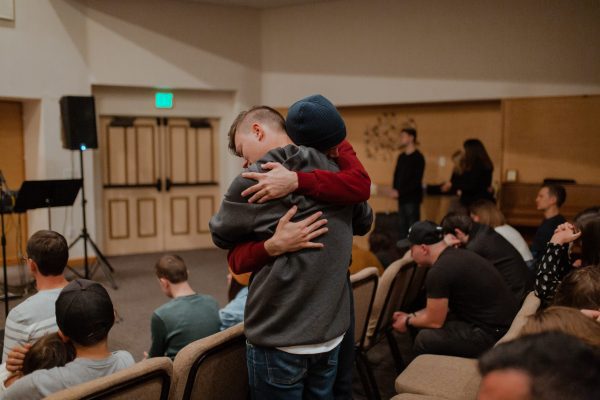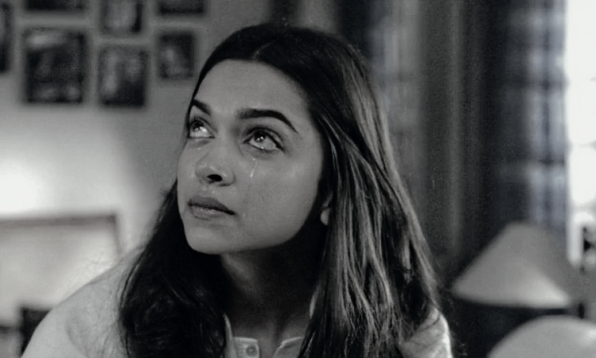Thanks to books and films, most of us have a vague idea of post-traumatic stress disorder, more commonly known as PTSD. It is a mental health disorder that is usually triggered by a catastrophic traumatic event. This could be an event one has experienced or witnessed. Terrifying events like war, sexual assault, and life-threatening events are some situations that can trigger PTSD. War veterans are among the set of people who are most commonly diagnosed with PTSD.
We talked to mental health expert, Dr Era Dutta, to get her input on post-traumatic stress disorder and how to identify its symptoms and work towards healing from it.
Related: 9 Small Steps To Help You Care For Your Mental Health In 2022
What causes post-traumatic stress disorder?

According to Dr Dutta, “PTSD is generally associated with catastrophic trauma. However, the issues can be more than just war or sexual assault. It can be a natural disaster like a tsunami or an earthquake.” While this is commonly known, other types of events can also lead to post-traumatic stress. “Trauma could be from losing parents early on, being subjected to a grave amount of bullying, torture or being abandoned. PTSD is an evolving subject; however, core PTSD definition requires it to be catastrophic in nature.”
There are also times when PTSD is discovered years after a traumatic event takes place. This usually happens because, sometimes, the body locks in the trauma and one may not process it. Dr Dutta adds, “When the stressor is really big, a person goes into a fight or flight mode and may just be fending for survival. Hence, they can’t identify the signs of PTSD.”
What are the signs of PTSD?

Dr Dutta talks about the hallmark symptoms of PTSD, which are:
- Hypervigilance – Where you avoid any stimuli that remind you of the traumatic event. If you are somebody who suspects you have PTSD, you may be hypervigilant and avoidant. You’ll try to avoid the people or the places that remind you of your traumatic incident. Or you may be making an active effort not to think of the incident or any associated details.
- Nightmares – Sleep issues are a pretty common symptom of PTSD and you are usually plagued with nightmares centring around the traumatic incident.
- Flashbacks – You could face flashbacks or sudden flashes to the traumatic event. If you think you have PTSD, flashbacks are one of the signs you should look out for.
- Anxiety – PTSD often comes with an array of anxiety symptoms like irritability, insomnia, and dissociation. In case you think you have PTSD, you may be startled very easily or you may be always on the lookout for danger. Chances are, you may also be feeling an overwhelming sense of guilt and shame associated with the traumatic event.
While these are common symptoms, they can present themselves differently in different people.
In recent years, more people are coming out with PTSD diagnoses. PTSD has also intensified during the pandemic, where people lost their loved ones or were isolated or had to see their loved ones suffering. While the pandemic has undoubtedly affected people’s mental health, it has also given an opportunity for people to talk more openly about such issues.
According to Dr Era, in the next few years, there is a possibility of more C-PTSD diagnoses coming up. “People have been through so many micro traumas and they are piling up. This can cause complex post-traumatic stress disorder”, says Dr Era.
What is Complex Post Traumatic Stress Disorder or C-PTSD?

While PTSD is a more commonly known term, Complex PTSD or C-PTSD is a fairly new term undergoing extensive research. Expounding on the same, Dr Era shares, “Typically, PTSD is a one-off, very catastrophic event. However, C-PTSD is the multiple small experiences that come together and amount to trauma in a person. So, this could be childhood abuse, a trauma in parenting, or having difficulty adjusting to an environment. The symptoms can be a mix of traditional PTSD and anxiety symptoms. Additionally, there can also be symptoms like fear of abandonment, intense fear of relationships, and difficulty in trusting people. Since C-PTSD is a subject still under intense study, a lot of people are still unaware of it. Hence, C-PTSD is something that is rarely diagnosed in people.”
How to deal with a PTSD diagnosis

Connecting with someone who has post-traumatic stress disorder can be quite difficult. It requires a lot of patience and understanding, in addition to being knowledgeable about the disease. Dr Era elucidates, “At times, with war veterans or people who have had catastrophic traumatic events, their guard is so up, that they sleep with weapons. They may always be on guard and keep protecting themselves and not have intimate relationships with anybody. It is very hard if your partner or a loved has a PTSD diagnosis.”
Dr Dutta further adds, “Understanding and educating yourself is the first key. Go to appointments with them to show support, ask their mental health professional what you can do to make them feel safer and more grounded in the present moment.” More importantly, it is crucial to avoid belittling their emotions and experiences. Never say something like “oh it could happen to anyone” or “it wasn’t such a big deal”.”
“Through PTSD, we also focus on acceptance and growth. That is post-traumatic growth and not just post-traumatic stress disorder,” Dr Dutta says. “We highlight the fact that the brain and body have been through a lot in PTSD. The body also goes through a lot of resilience. While people do walk out of a traumatic incident with a stress disorder, a lot of people also come out of the disordered phase and look at it as a growth phase they have undergone. So, that is a ray of hope for some people.”
All Images Source
Related: Get The Help You Need: 5 Platforms That Help You Find Psychologists And Mental Health Resources














